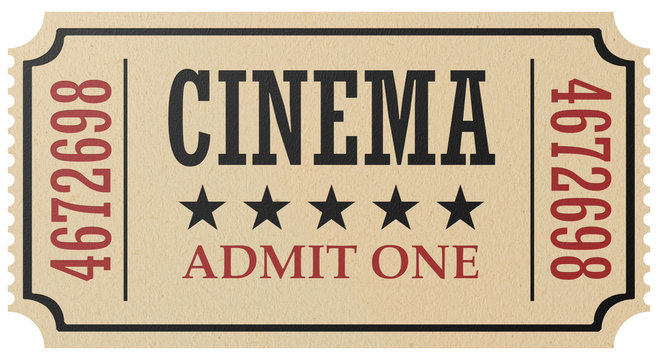“My entry point was Joel Schumacher’s Batman Forever. It was an early moment in my realizing I was trans. I wanted to be Nicole Kidman.”
Director Vera Drew giggles at herself, reliving the memory of her introduction to the world of Batman, and, on some level, the world of queerness. Thirty years later, she now occupies both realms, having written and directed The People’s Joker, a hand-grenade of a movie hurling at screens April 5.
Drew leans back in her chair, the breeze dancing with her long, brown tresses, the Los Angeles sun reflecting in her glasses. A toothy smile crosser her face, her lips highlighted by a—apropos of nothing—deep red lipstick, the kind the Joker might wear on a nighttime rampage.
“Last we talked,” she observes, “would have been when I was nominated for an Emmy for Who is America? I was trying to escape the edit bay.”
Prison Escape

Drew has every reason to feel self-satisfied. Off the success of her Emmy nomination, Drew began work on a fan-edit, incorporating elements of all the Batman films to date—in particular, Todd Phillips’ Joker. Drew wanted to mold the material into a more personal work—one that commented on her own history as a stand-up comic, life in Hollywood, and coming out as a transgender person.
“I saw Joker as a movie as about somebody who was just trying to do comedy, and the entire social structure was keeping him down,” Drew explains. “His family failed him. The government failed him. And then, when he finally gets to this place, he realizes he’s being exploited and turns into this symbol that he never intended.”
“I watched that as a trans person, and that resonated with me,” she continues. “Greatly. It’s hard to get trans healthcare. As a comedy person, it was hard for me to form my voice. I come from a toxic family structure. And as a trans person, my identity is constantly politicized. That inspired me.”
“Then, I was commissioned to edit Todd Phillips’ Joker,” Drew says. “It was in a direct response to Todd Phillips talking about the state of comedy right now. He was in the press a lot in 2019 complaining about ‘woke’ culture. He didn’t want to direct comedies anymore because of cancel culture. Which is like the most boring thing anybody could say.”
Joker Vs. Joker

Drew laughs at the memory, her hands raised in a gesture of innocence. “When I started to re-edit it, I fell in love with Batman and the DC canon,” she goes on. “I always connected with that world. I wanted to write a queer, coming-of-age Joker parody. That was when the shift started.”
That shift evolved from an experimental project into something much bigger: a fan edit became an original feature film.
“I had this image of a drag queen who is physically addicted to irony,” Drew muses. “She needs it to function, but it’s eating away at her body. That’s where the Smilex came together.”
The People’s Joker follows the story of D***, a lonely kid from Smallville (Superman’s hometown), who aspires to join the cast of UCB, a sketch comedy show produced by Lorne Michaels (yes, as in the real Lorne Michaels, longtime producer of Saturday Night Live) and owned by Bruce Wayne. Following his career as Batman, Wayne has made his secret identity public, and produced a series of movies and TV shows capitalizing on his Bat-myth.
As an adult, D*** journeys to Gotham in hopes of joining the cast, but encounters an elaborate scam perpetrated by Wayne and Michaels to exclude women and queer people from comedy, and designed to bilk young upstarts out of thousands of dollars in the name of “training.” Dejected, D***, along with several other UCB rejects (including the Penguin, Poison Ivy, Mad Hatter, and other classic Bat-rogues) form an anti-comedy team in an abandoned theme park, vowing to destroy the corruption of UCB and Batman. D*** also starts a romance with Mr. J, a fellow member of the Rogues Gallery. Their relationship helps D*** come out as transgender, dousing herself in a vat of estrogen, and reemerging as Joker the Harlequin.
Needless to say, a story so wacky yet specific derives heavily from Vera Drew’s own life.
“I started doing comedy when I was so young, like 13,” Drew explains. “I did Chicago Second City. When I came to LA, I retired from performing because the stand-up scene was so bad when I came in. But I loved improv. So I tried to get into UCB. I thought my experience would translate, but nobody takes you seriously when you say you stared comedy at 13.” She laughs.
“They have so many rules—ways of teaching improv that are so stifling,” Drew continues. “It’s also no coincidence that the UCB is right across the street from the Scientology center. It is completely a labyrinth. They have a tiered, class structure that costs thousands of dollars just to get on stage. Thankfully I had a teacher say ‘You’re good, but you don’t belong at UCB.’ It forced me to carve my own path.”
Comedy Rogue

That path led Drew to forming Highland Park TV and This American Drew, a web series devoted to comedy alongside other UCB and stand-up pariahs. Both experiences, along with Drew’s own history of abusive relationships and a neglected childhood, also fuel the story of The People’s Joker.
“I was coming at all of it from a place of seeing where comedy was integral to my identity,” Drew says of developing the movie, “but kept me working way too hard making stuff that had me all over it, but didn’t have my perspective in it. So I wanted to make a piece of art about that.” She shifts in her chair, squinting in the sun, as a darker thought crosses her mind.
“Of course I loved SNL as a kid, but in the industry, seeing what SNL actually is,” Drew spits, her voice intensifying. “It’s just an arm of our nuclear industrial complex. It determines elections. It normalizes the worst politicians. It harbors abusers. People have died there.”
“Lorne Michaels,” she goes on, leaning forward, “does represent, to me, what the ruling class really is: when you reach a certain economic point, the whole read and blue thing doesn’t matter anymore. He was friends with Trump. He may be a Neo-liberal darling, but he’s also a warlord who has protected abusers.”
The People’s Joker satirizes the violence and male rage presented in Todd Phillips’ Joker, recalibrating it into comments about the entertainment industry and life as a transgender woman. Drew also addresses Phillips’ complaints that social advances by marginalized people—namely the LGBTQ community—with pointed digs at whiny filmmakers who can’t get by on stock homophobic and transphobic jokes, much as Phillips did with the Hangover movie series.
Drew also takes aim at recent attempts at diversity hiring, used by powerful men and corporations as a shield from criticism. For Drew, such attempts amount to little more than virtue signaling that robs marginalized people of an opportunity to share their voices—and power.
“I think the reason there is so much backlash to ‘woke’ culture is that you’re seeing stories about queer culture told by straight-cis people,” Drew reflects. “It’s getting shoved down people’s throats in a way that’s being politicized. And the stories aren’t being told by people who want trans people to have rights, or gay people to be embraced.”
Rebellion

“I hate where representation is at,” she laments. “It’s only focused on on-camera representation. There are diversity hires, but it’s never at the top to let a queer creator play with established IP. I know so many trans filmmakers who would make amazing Marvel movies, amazing Star Wars movies, and they’ll just never have the opportunity.”
“I was up for a big directing job,” she recalls, “but as soon as I came out, that went away. It was clearly tied to my coming out. Later, I was a diversity hire on the reboot of a popular but problematic cartoon series. And I looked around the writer’s room and realized huh, I’m here because I’m trans. We were all just chess pieces of trying to get enough ‘woke’ points to reboot something that probably shouldn’t have been rebooted in the first place.”
The People’s Joker also lampoons another element of Joker: mommy issues. When confronted about the subplot of D***/Joker’s relationship with her mother, Drew also doesn’t obfuscate.
“[My mom] hasn’t seen the movie yet,” Drew concedes. “I hadn’t talked to my parents for a few years before I made this. Coming out was pretty intense. But in making art, it healed my relationship with them. I’ve arrived at a point where I understand I grew up in the 90s where trans representation was limited to Howard Stern and Jerry Springer. Both of which I love, by the way.” She laughs.
“My parents didn’t know what the f-ck I was.” Drew sighs. “How could they receive that? So I wanted to make a piece of art that was a realistic but optimistic portrait of what a mother and trans daughter could be. [My mom] is coming to the Chicago screening. We’ll see what she thinks. I think she’ll get to know me in a way she never has before.”
So will everyone else. After playing the festival circuit—much to the ire of Warner Bros., who sent Drew & Company angry letters, but stopped short of a cease & desist—The People’s Joker earned glowing reviews, and nabbed nationwide theatrical distribution. It also appears to have infected the zeitgeist: while visiting WonderCon 2024, this Wealth of Geeks editor spotted a Joker the Harlequin cosplayer.
While the release will mark the end of a wild chapter of Drew’s life and career, it will also mark the beginning of her ascent as a successful director. Not one to rest on her laurels, she already has started work on her next project.
“Right now, I’m writing my next movie,” Drew says, excitement in her voice. “It’s a trans body horror movie.” She also doesn’t rule out the possibility of a People’s Joker sequel—something teased in the final film.
“I may revisit this character,” she continues. “She could go anywhere. If I ever make a sequel to The People’s Joker, it won’t be a Joker movie. It won’t be a comic book movie. This movie is so about my 20s and coming into my own. When I revisit these characters, I want it to be for a purpose.”
Drew pauses, the smile returning to her face, her toothy grin glowing in the sunlight. She shrugs, awash in a devious glee that would make Joker the Harlequin proud.
“We live in chaotic times.”
The People’s Joker opens in select theatres April 5.



